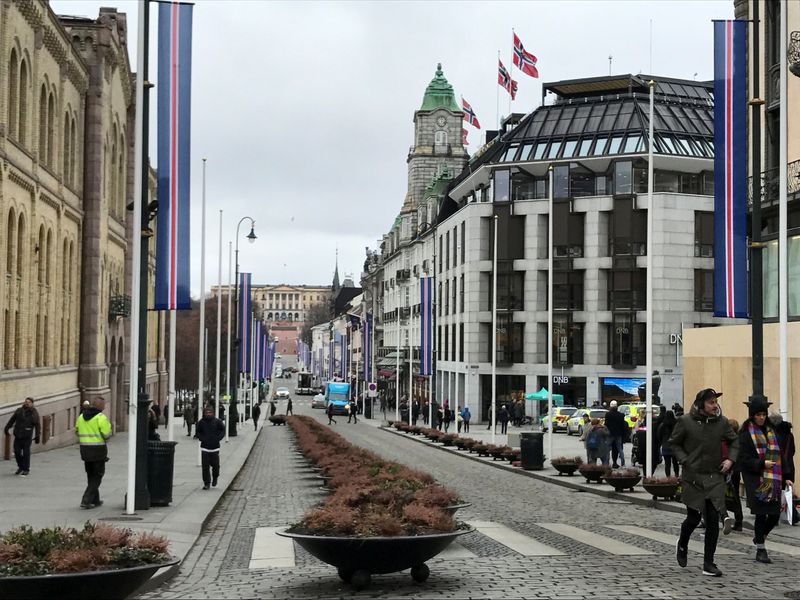By Gwladys Fouche
OSLO (Reuters) - A growing number of Norwegians would like their country to join the European Union, although the "no" camp still holds an edge, an opinion poll showed on Wednesday, on the eve of the 30th anniversary of the last referendum Norway held on the question.
The Nordic country last said "no" to joining the European bloc, on Nov. 27-28, 1994. It also voted against membership in a 1972 referendum.
Instead, since 1994, Norway has been part of the European Economic Area (EEA), allowing the free flow of people, goods, services and capital between the the European bloc and non-EU states Norway, Iceland and Liechtenstein.
Some 46.7% of Norwegians said Norway should not join the EU, while 34.9% said it should and 18.4% were undecided, according to a Sentio poll published in the daily Nationen.
Opposition to membership has declined from more than 70% in 2016 and is now at the lowest level since 2009, while support is up from around 20% in the last decade, Nationen said.
Times of crisis tend to push Norwegians to be more pro-EU, but overall they remain satisfied with being outsiders, with only a "shock" able to change opinions, said Kjetil Alstadheim, author of the 2024 memoir "Everyone Got it Wrong: On Norway as an EU Nation".
"If you have a trade war and a bird flu pandemic, something on top of that, it might (change opinions)," he said.
Overall there is little political debate about joining, he added, as the two main parties, Labour and the Conservatives, as well as the top trade union and main business organisation, all oppose opening a new debate.
"They do not want to become David Cameron," he said, referring to the 2013 promise by Britain's then-prime minister to call a referendum on leaving the EU.
"Their fear is that, if you start a new debate now about EU membership, it will endanger the cooperation that Norway has through the EEA agreement," Alstadheim said.

Norway is not part of the EU's customs union, the common agriculture and fisheries policies, the monetary union, trade policy, foreign and security policy and justice and home affairs.
The early November survey polled 1,000 individuals, Nationen said.